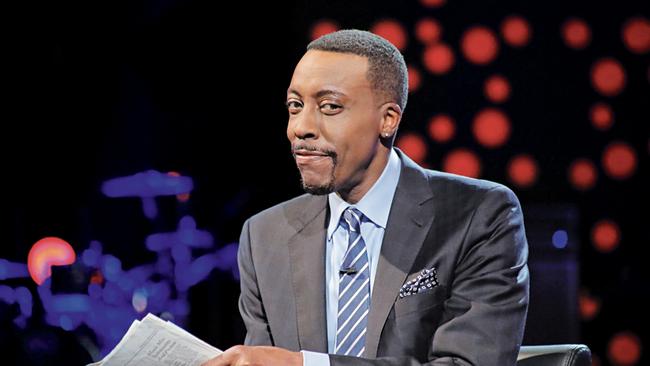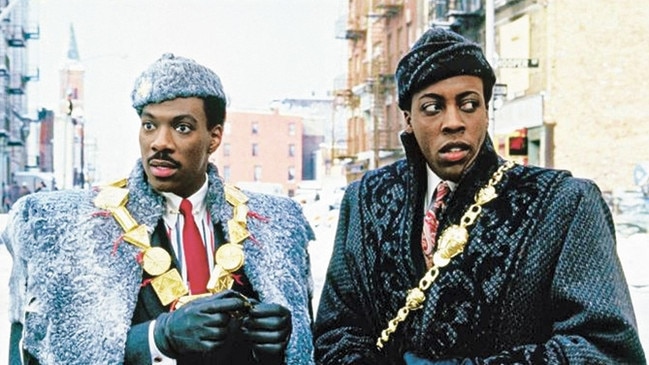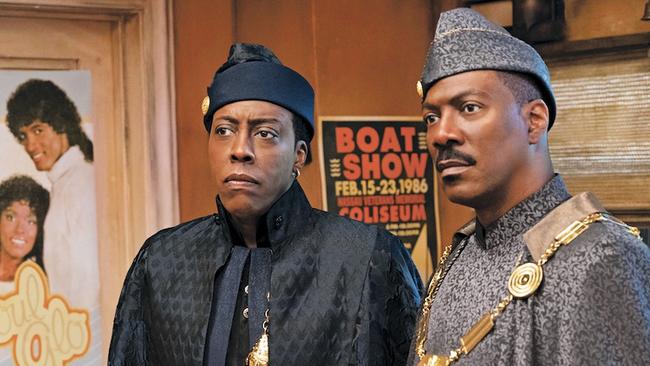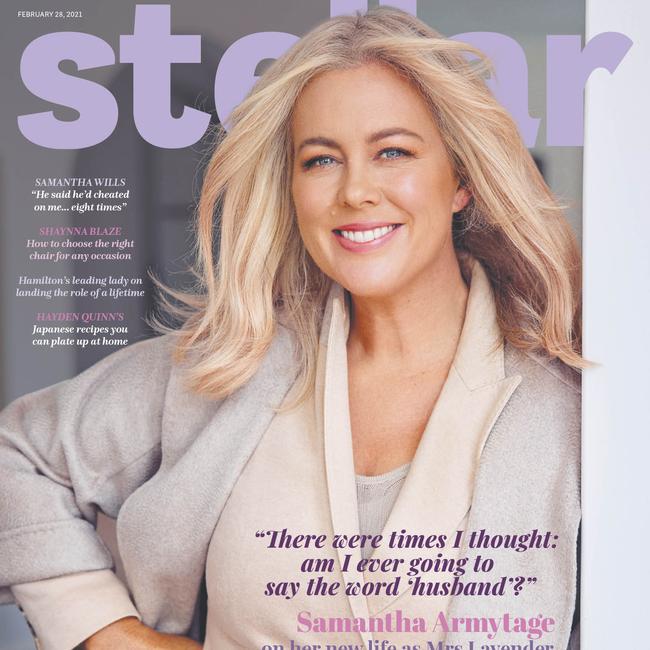‘90s talk show host Arsenio Hall on today’s late-night TV stars
‘90s talk show host Arsenio Hall compares himself to the new crop of late-night television stars.
Stellar
Don't miss out on the headlines from Stellar. Followed categories will be added to My News.
At the dawn of the ’90s – before globalisation and social media changed how stars were born and trends took hold – comedian Arsenio Hall was perhaps the closest thing that American popular culture had to a canary in the coalmine.
Or, as he more aptly put it in an interview last year, “I was the blue bird – except I was black”, a wry nod to Twitter, which now plays much the same role that his eponymous 1989-94 series did for six seasons.
Unlike his more buttoned-up competitors in the late-night talk-show arena, Hall welcomed little-known newcomers to his couch, focused on black and urban talent, and thought outside the mould with his more traditional guests.

Allowing then-presidential candidate Bill Clinton to play the saxophone on air in 1992 is a gambit widely credited with juicing his campaign and locking in the youth vote with the “MTV generation” that watched Hall in droves.
Today Hall can only marvel at what he accomplished. “When I was coming up, if Beyoncé had put out an album, I would have got that call, because she would have known I had her [audience],” he tells Stellar. “Now she can say, ‘F*ck all late-night shows – I’m dropping it at one in the morning.’ Now talk shows have to hope the artist wants to do them.”
A 360-degree presence during his show’s reign, Hall hosted award shows, popped up in the video for Paula Abdul’s ‘Straight Up’ and co-starred with close friend Eddie Murphy in a wild assortment of roles in the smash 1988 film hit Coming To America. Now, after years of rumours, it is getting a sequel.
Coming To America has endured – and it’s that rare widespread success that also seems to have a cult-like following. Why is that?
Black people never really saw themselves as kings and queens – as royalty – when it came out. I hate to say it, but when I was coming up, Africans were just who Tarzan and Jane hung out with, and made them carry their luggage.

There are a lot of reassessments of the movie as more than just a zany comedy now.
People say that Coming To America made Black Panther possible, or that it was a balm for black audiences at a time when they were only portrayed as gangsters, dole cheats and drug addicts.
I would love to think it did some of that, but sometimes I think people who do what I do in this town make it a little more important than it is. As much as I know laughter is important and it heals, I like to keep it as just a movie, and a momentary hiatus from your pain or your troubles.
You play so many characters in these films. Three decades later, do you have more or less patience in the make-up chair?
You have to turn lemons into lemonade. I try to look in the mirror and work on my lines and the character, because you sit there for hours. I had to have a conversation with the maid in my hotel in Atlanta [where the movie filmed].
I told her I didn’t need my sheets changed every day and she said, “But… they have all these little things…” I realised it was the “skin” from my characters coming off. The make-up never fully leaves you. I had to explain that to her – to let her know I wasn’t some nasty creep.

When you got in front of the camera, how easy was it to fall back into the old rhythms?
I’ll be honest – me and Eddie talked many times and we never thought there would be a sequel. Instead of doing a script that wasn’t right, he desired to leave it where it was. People love it so much, they didn’t want us to mess it up. But once we got on the bike… the advantage is that I have chemistry with Eddie because he’s my best friend.
We talk or text every day. So the chemistry just flowed. It was immediate.
The Arsenio Hall Show changed the face of talk shows in America – and probably helped elect a president. But it never got overtly political, whereas now every host is expected to pick a side.
How would you set yourself apart today if you came back to the air?
I’d try to do something new and different – because only something new and different works in late night. But that’s harder now. There’s so much. When I was coming up, it was [David] Letterman in the late slot and me and Johnny Carson in the early slot.
Me and Johnny didn’t have the same audience, so we co-existed well. Now, not only are there a thousand shows, but they’re all hosted by somebody named Jimmy! So if I came back, what I’d do is bleach my skin and call myself Jimmy.

Do you think your legacy has been properly recognised?
Back then, a lot of people didn’t want to say they liked my show. They had loyalties to Letterman and Johnny. I’m in a long tradition of dark people – in show business or anywhere else – who will never get the accolades they possibly deserve.
I see when they write articles or make lists of late-night talk-show hosts and never put me in. But I’m cool – because I go to the swap meets, the churches and on to the streets and I feel it there. And it satisfies me.
Coming 2 America is on Amazon Prime Video from Friday.




